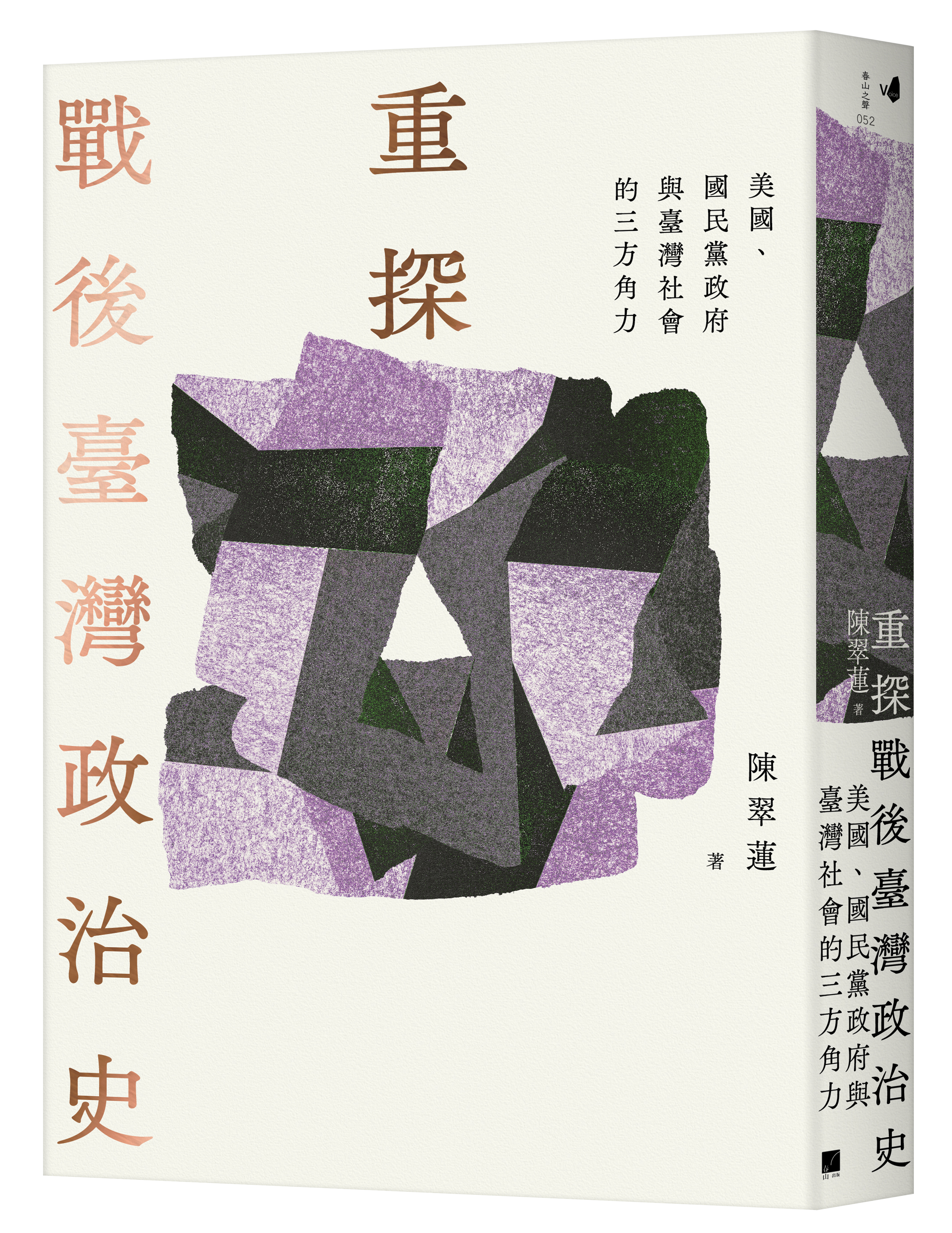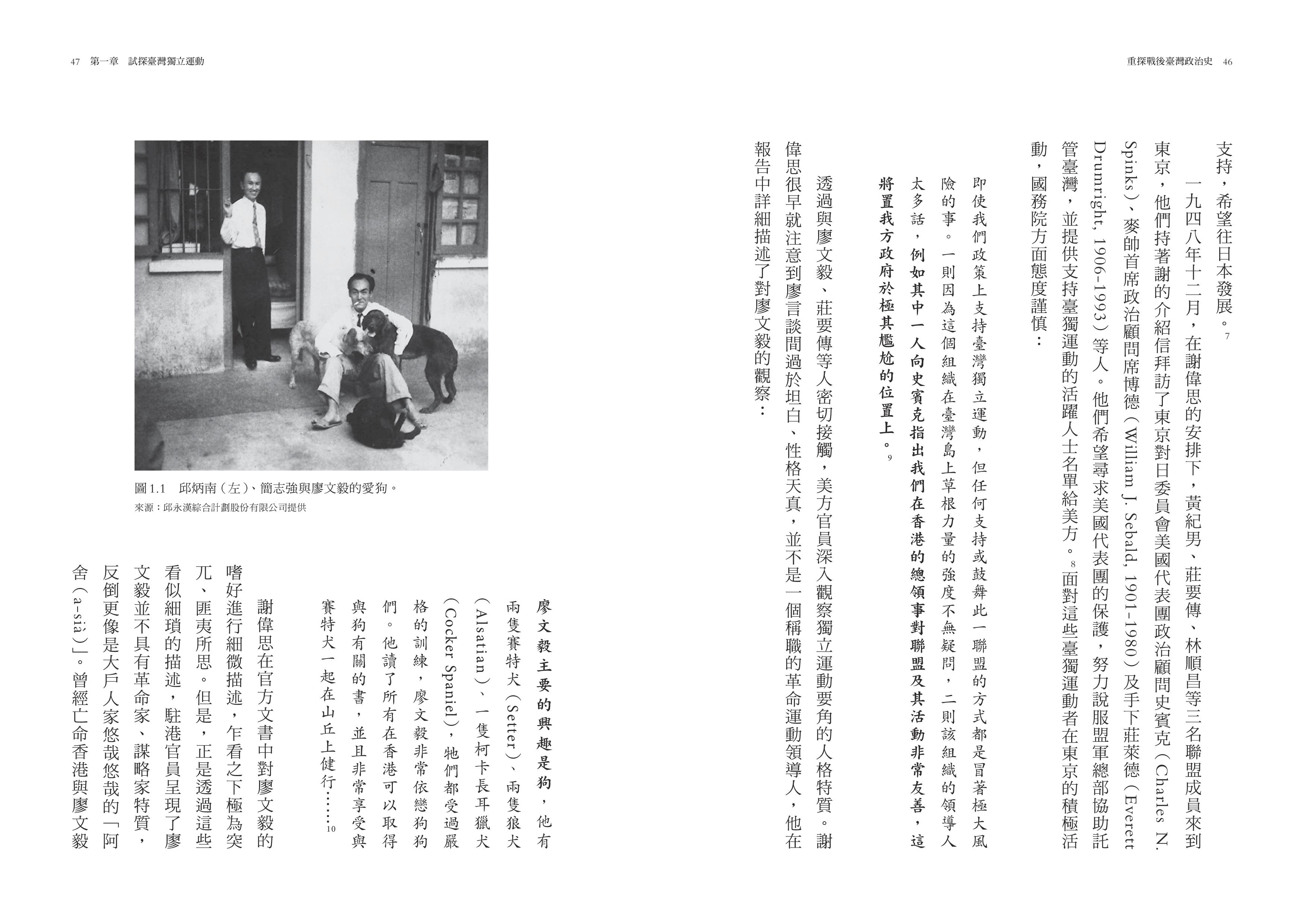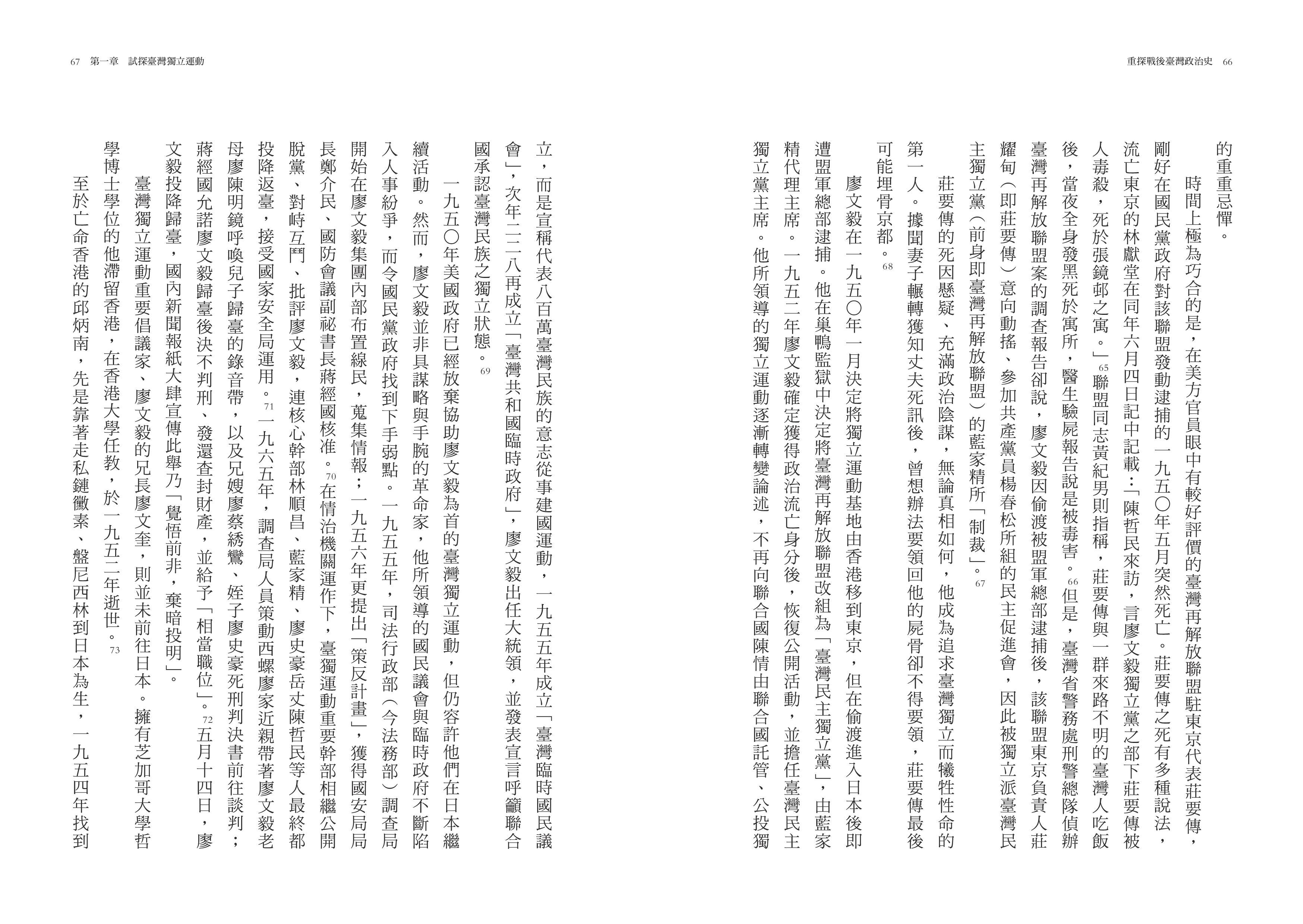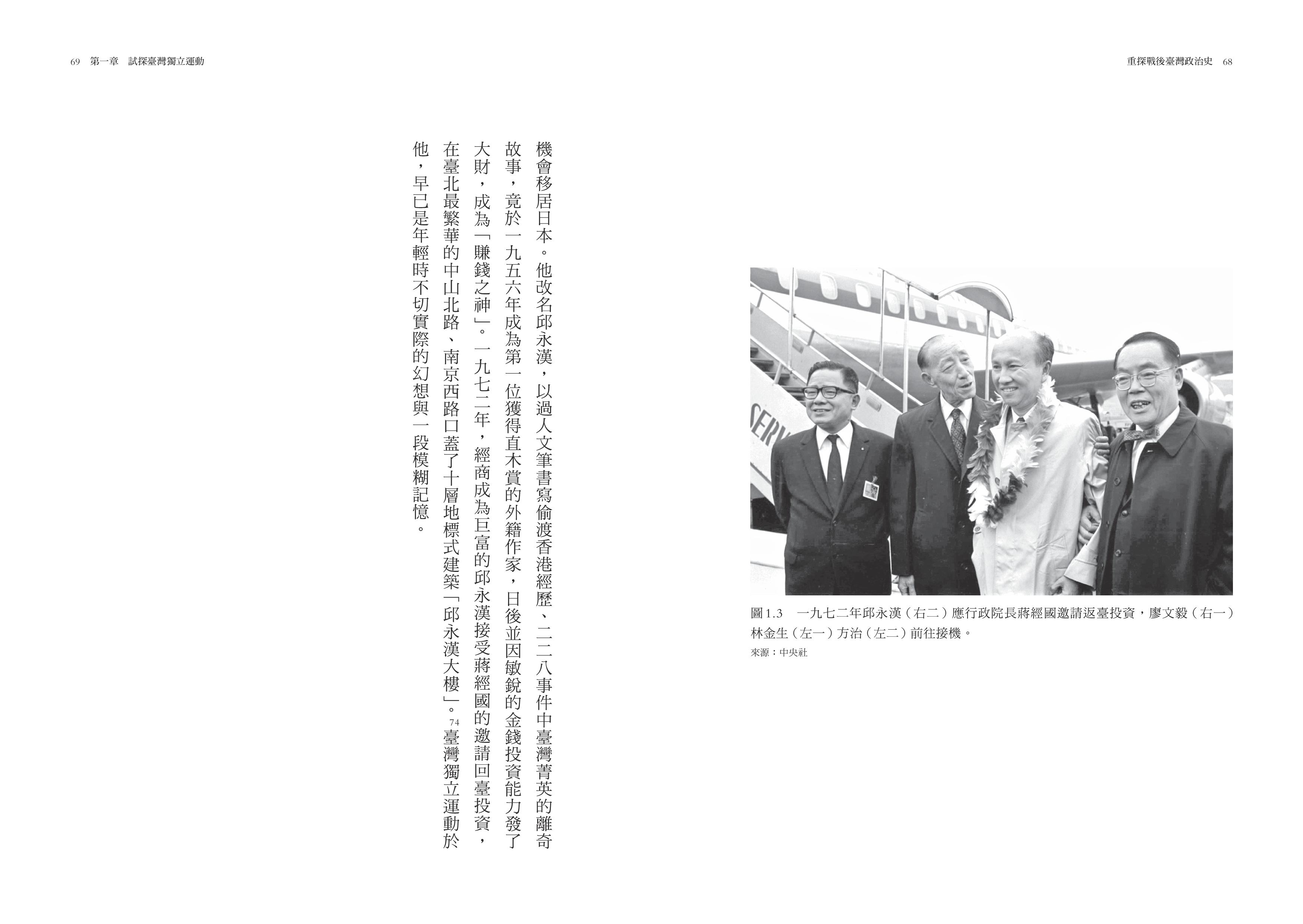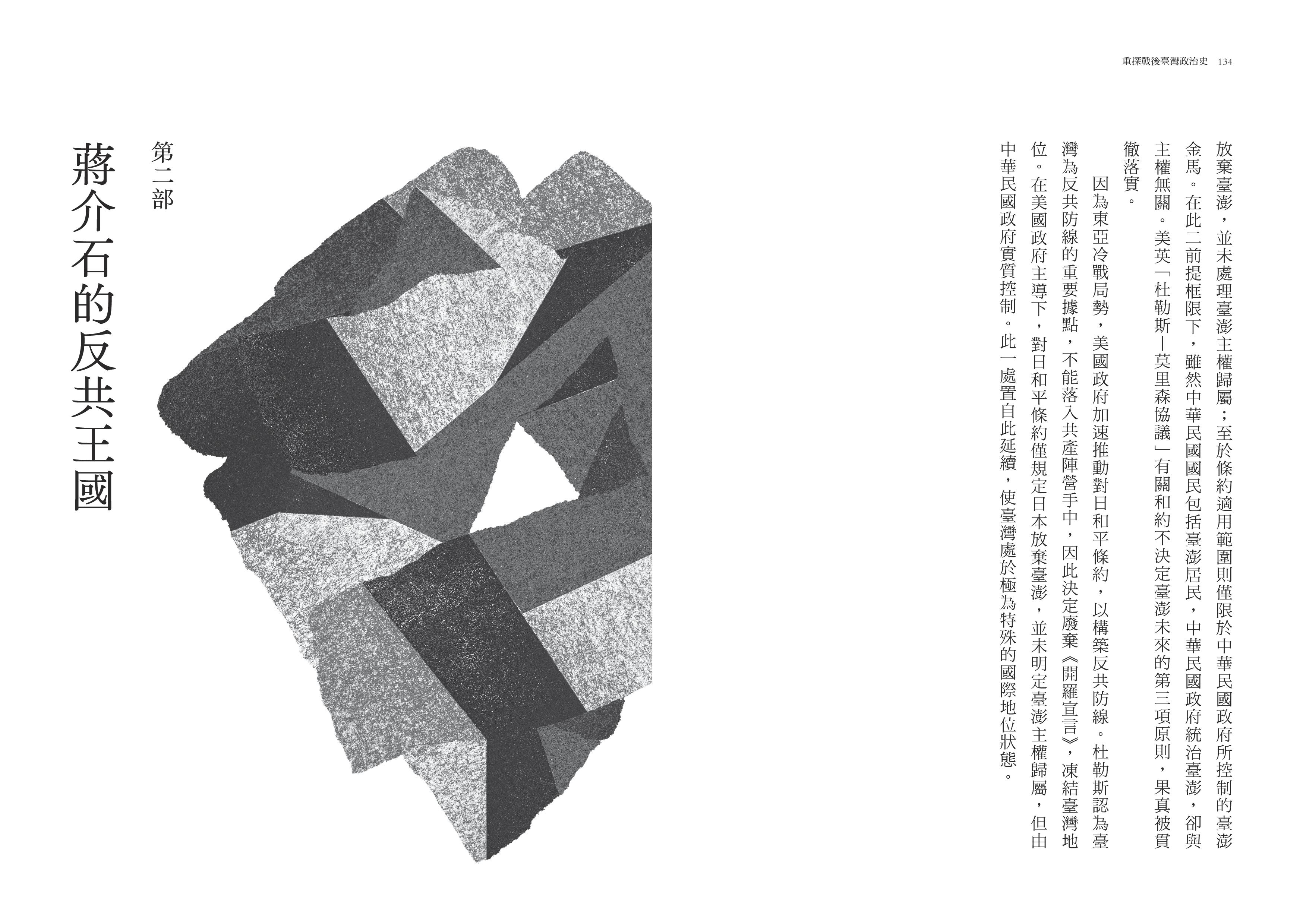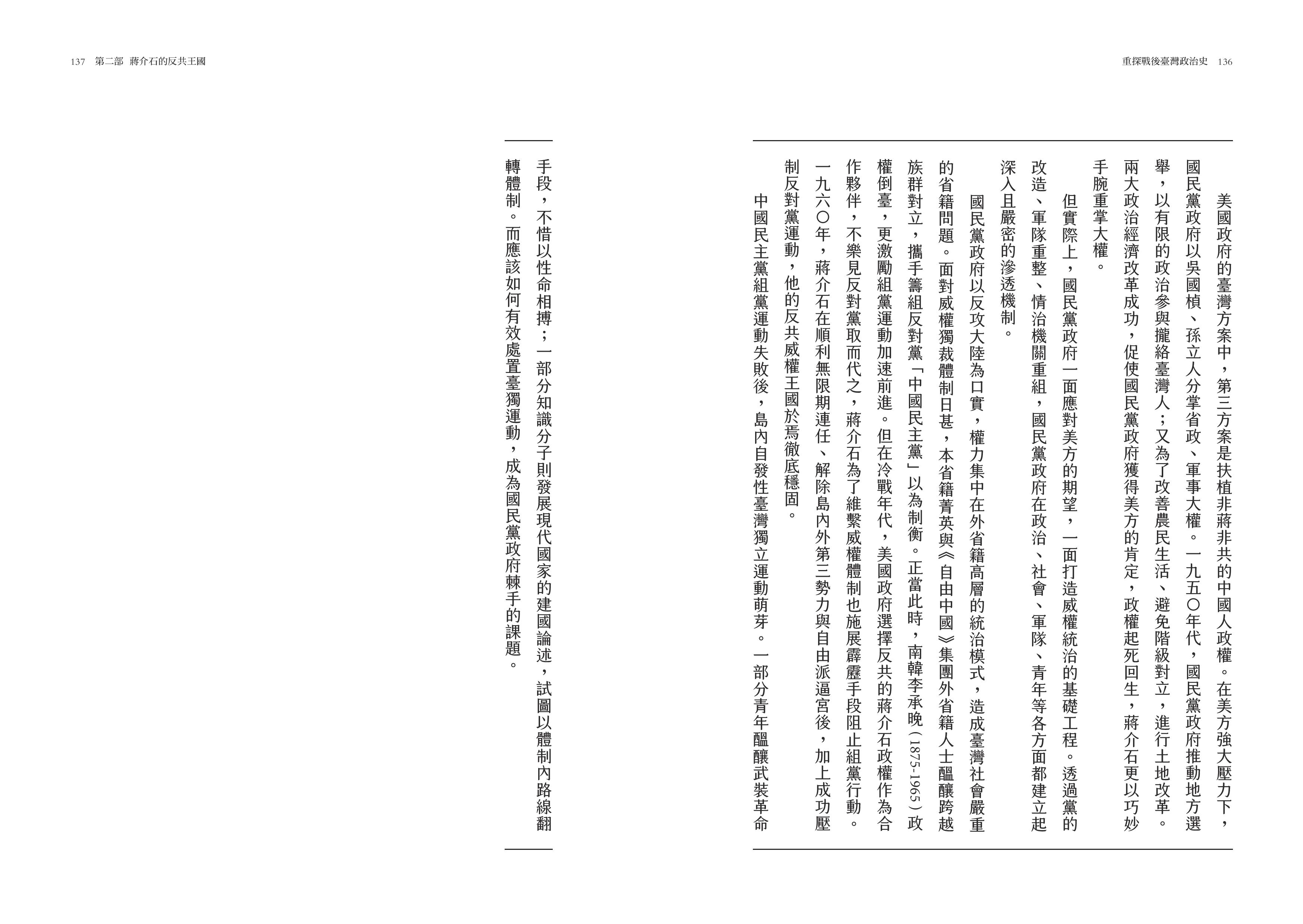重探戰後臺灣政治史: 美國、國民黨政府與臺灣社會的三方角力
Revisiting the Political History of Post-War Taiwan
歷史/時代 政治
2023 實體與數位同步
本書全面梳理二戰結束迄今臺灣主要的政治發展過程,並從「美國政府—國民黨政府—臺灣社會」三方關係加以觀察分析。希望透過對這段歷史的回溯與借鏡,能有助共同體的成員們理解臺灣當前狀態,並在此基礎上思索未來道路。
This book provides a comprehensive overview of Taiwan’s major political developments since the end of World War II, analyzed through the triangular relationship among the U.S. government, the Kuomintang government, and Taiwanese society. By reflecting on and learning from this history, it aims to help members of the community better understand Taiwan’s current situation and, based on this foundation, consider future paths forward.
#戰後臺灣史 #東亞冷戰史 #臺美關係 #臺灣地位未定論 #臺獨運動 #威權體制 #臺灣民主化
#PostwarTaiwanHistory #TaiwanUSRelations #TaiwanStatusQuoDebate #TaiwanDemocratization
作者介紹
-
作者
陳翠蓮
國立臺灣大學政治學博士,臺灣大學歷史學系教授。曾任《自立晚報》記者,後任教於淡江大學、政治大學。研究領域為日治時期臺灣政治史、戰後臺灣政治史。主要著作有《派系鬥爭與權謀政治:二二八悲劇的另一面相》、《臺灣人的抵抗與認同,一九二〇~一九五〇》、《重構二二八:戰後美中體制、中國統治模式與臺灣》、《自治之夢:日治時期到二二八的臺灣民主運動》、《政治檔案會說話:自由時代公民指南》(合著)等。
作者介紹
-
作者
Chen Tsui-lien
Chen Tsui-lien PhD in Political Science from National Taiwan University, currently a professor in the Department of History at National Taiwan University.
作品簡介
「一本在最近三十年出現的新的史料條件以及研究成果上,展現臺灣戰後政治史研究新水準的作品。」 ──若林正丈(東京大學、早稻田大學名譽教授,《戰後臺灣政治史:中華民國臺灣化的歷程》作者) ●●● 在新的歷史時刻,重探我們的過去,思索我們的未來。 近幾年來美中關係急遽轉變,臺海安全屢屢成為焦點。這是自一九七〇年代美中建交以來,國際局勢最大的轉向,將嚴重牽動臺灣命運,本書作者認為一個新的歷史時刻已到來。 然而,過去臺灣社會長期處在威權統治之下,對集體命運無力也無從關心;威權時代鋪天蓋地的政治宣傳更導致民眾對自身國際處境或是無感、或是多有誤解。此種狀態延續至今,許多人對臺灣境遇仍缺乏認識,對臺灣民主化過程懵然不知,甚至歸功於蔣經國仁慈推動。 為此,本書全面梳理了二戰結束迄今臺灣主要的政治發展過程,並從「美國政府—國民黨政府—臺灣社會」三方關係加以觀察分析。作者希望透過對這段歷史的回溯與借鏡,能有助共同體的成員們理解臺灣當前狀態,並在此基礎上思索未來道路。 好的歷史研究有時很像推理小說,在眾人原本信以為真的說法上發現破綻,逐步拆解釐清、解答謎團以迄真相大白。本書就是這樣一本深具解謎魅力、讀完令人恍然大悟的論著。 全書分成三部,各部均以戰後臺灣政治發展的重大謎團為核心,展開多角度交叉論證。第一部「東亞冷戰下美國政府的臺灣方案」,探討一九五〇年代初期,臺灣主權問題如何從《開羅宣言》歸還中國的約定,轉變為後來《對日和約》中地位未定的安排。第二部「蔣介石的反共王國」,說明敗逃來臺的國民黨政府如何在絕境中重振旗鼓,對外獲得美國認可,對內進行有效社會控制,全面建立起穩固體制。第三部「民主化的進程」,勾勒島內外人士如何攜手合作,並搭乘雷根政府「民主促進」政策的有利條件,終於衝破威權禁錮,尤其精采的部分,是經由綿密論證破解「蔣經國為臺灣民主化推手」迷思。 除了重探過去,作者也為臺灣未來建言。她指出臺灣民主體質隱憂,期許深化民主體制,對內形成共同意志,對外爭取國際支持。這將是這一代臺灣人無法逃避的挑戰。
作品簡介
In recent years, the rapid transformation of US-China relations has repeatedly brought Taiwan Strait security into focus. This shift marks the most significant international turn since the establishment of US-China relations in the 1970s, deeply impacting Taiwan's destiny. However, Taiwan's society has long been under authoritarian rule, which limited collective awareness and concern for their own destiny. This situation persists today, with many still lacking understanding of Taiwan's circumstances and remaining unaware of Taiwan's democratization process, often mistakenly attributing it to the benevolent efforts of Chiang Ching-kuo. To address this, the book comprehensively examines Taiwan's major political developments since the end of World War II. The author aims to provide a thorough retrospective and analysis of this history, hoping it will help members of the community understand Taiwan's current state and contemplate future paths forward.
出版資訊
- 類型風格 歷史/時代 、 政治
- 作品尺寸 14.8 x 21cm cm
- 作品集數 1集已完結
- 出版年份 2023
-
出版方式
實體與數位同步
- ISBN(實體) 9786267236604
- ISBN(數位) 9786267236628
- 適合年齡 成人(18歲以上)
- 是否為跨國題材 否
- 作品規格(頁數) 480
- 作品規格(字數) 約23.9萬字
- 銷售實績 累積銷售近4,500本
-
其他補充資訊
- 其他參考連結
- 媒合目的 版權交易
